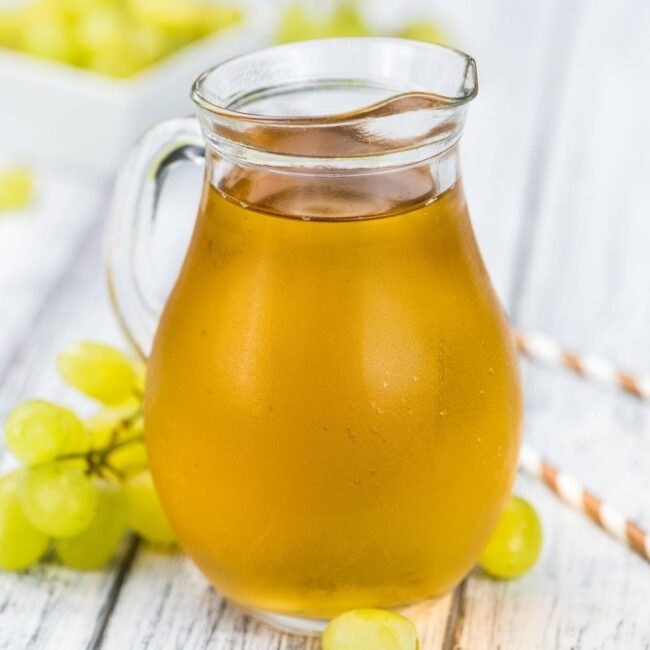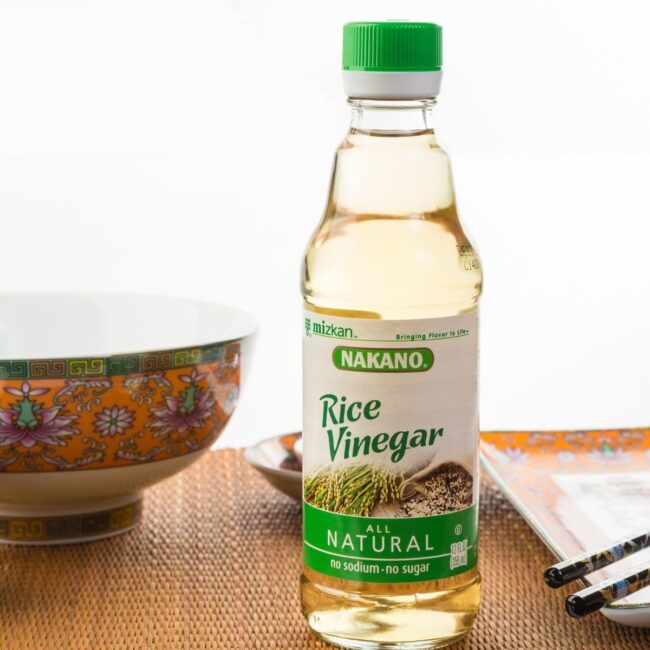4 Key Simple Rice Wine Alternatives for Flavor
Substitutes for rice wine keep the delicate sweetness and acidity intact in marinades and stir-fries.
Various vinegars, wines, and cooking liquors can replicate its depth.
Some alternatives bring a richer, fruitier note, while others provide a more neutral base.
What Is Rice Wine?
Rice wine offers a fascinating glimpse into Asian culture, especially in China and Japan.
Shaoxing rice wine, hailing from the Shaoxing region, is celebrated for its rich flavor that enhances both dishes and drinking experiences.
Sake stands out with its unique fermentation process using koji mold, resulting in a beverage enjoyed at various temperatures.
Mijiu brings sweetness to the table thanks to distinct fermentation methods that highlight different types of yeast and rice.
Incorporating these wines into your cooking opens up new avenues for flavor exploration while understanding their alcohol content allows for thoughtful substitutions if needed.
Reasons to Replace Rice Wine
Substituting rice wine can be a smart move in the kitchen, especially when it’s hard to find.
The unique sweetness of rice wine enhances many recipes, so opting for alternatives with similar flavors ensures your dishes stay true to their intended taste.
Dietary restrictions present another valid reason; some people may need to avoid certain ingredients found in traditional rice wine.
Finding replacements that mimic its tenderizing and flavor-boosting qualities is essential for achieving the best results in your meals.
Knowing these options allows you to confidently whip up delicious dishes without compromising on flavor or quality.
Alcoholic Alternatives to Rice Wine
Alcoholic alternatives to rice wine bring a fresh twist for those looking to explore different flavors in their drinks. They offer a new way to enjoy a familiar warmth and character while keeping the spirit of tradition alive.
Using Other Wines
Pale dry sherry and dry sherry work well as substitutes for rice wine, thanks to their similar flavor profiles.
When searching for a sweeter option, sake offers a pleasant alternative with its unique taste.
Dry white wines also serve as excellent replacements due to their fruity notes and balanced acidity, making them versatile in various dishes.
These alternatives can provide the desired flavors without compromising the essence of your recipes.
Each choice allows for creative cooking while maintaining delicious results.
Exploring these options can enhance any meal with ease and enjoyment.
Using Spirits
Exploring alternatives to rice wine opens up exciting options for your cooking.
Unique flavors can come from using spirits like gin, which adds herbal and slightly sweet notes to dishes.
A careful approach is essential when adding gin; too much can overpower other ingredients.
Champagne vinegar and sherry vinegar present bold flavor profiles that enhance various recipes, though smaller amounts are recommended to keep the balance intact.
With these substitutes at hand, delicious results await in every meal prepared without rice wine.
Satisfaction in taste remains a priority with these flavorful replacements guiding the way.
Non-Alcoholic Substitutes to Rice Wine
Check out these unique blend of tastes that capture the traditional warmth and complexity in a refreshing, lighter way without the alcohol.
Using Fruit Juice
Alternatives to rice wine include various fruit juices that can enhance flavor in dishes.
Grape juice, whether white or regular, works well as a one-to-one substitute.
Apple juice brings a gentle sweetness and pairs nicely with many recipes when used in the same quantity as rice wine.
For a balanced taste, mixing in lemon juice or vinegar can be beneficial based on your dish's needs.
Sweetness may also be boosted by adding natural sweeteners like honey or organic sugar for an extra touch of flavor harmony.
Using Vinegar
Finding alternatives to rice wine is easy with vinegar-based options.
Rice vinegar serves as a solid choice, offering a similar taste without the sweetness.
For each cup of rice wine needed, mix two-thirds of a cup of rice vinegar with one-third cup water for balance.
Apple cider vinegar also works well when combined equally with water to soften its flavor.
White wine vinegar shares acidity levels and can be diluted in the same manner for use in recipes.
Balsamic brings sweetness and can be adjusted by mixing it with water for milder results.
Adjusting amounts based on personal preference helps achieve the right flavor profile, especially when adding sweeteners like sugar or honey if desired.
How Substitutes Affect Taste
Substituting rice wine opens up a world of culinary creativity.
Think about how its sweet and slightly acidic flavor enhances your dishes.
Choosing apple cider vinegar or white wine vinegar can replicate that acidity, but moderation is vital to avoid an overpowering tanginess.
Mixing in a touch of sugar balances the flavors, creating a satisfying blend reminiscent of rice wine's profile.
For tenderizing proteins and starches, grape juice or lemon juice works well; just be mindful not to let lemon dominate the dish’s essence.
Adjustments matter when it comes to keeping your meal delightful while swapping ingredients effectively!
Rice Wine in Different Cuisines
Rice wine serves as a key player in the culinary landscape, particularly within Asian cuisines.
Its subtle sweetness and fragrant aroma elevate salad dressings, offering an alternative to traditional vinegar for a refreshing taste.
When incorporated into sauces, this ingredient brings forth delicate flavors that enrich soups and stews, adding depth that can transform an ordinary meal into something special.
Marinating meat or seafood with rice wine not only tenderizes proteins but also infuses dishes with delightful undertones of flavor.
In sushi preparation, blending rice wine with rice vinegar and sugar creates perfectly seasoned sushi rice that enhances both texture and taste in every bite you take.
Shopping and Storing Rice Wine
Finding the right substitute for rice wine can open up a world of flavor in your cooking.
Your local supermarket holds various options, often located in the same aisle or nearby.
Vegetable stock, sherry, white grape juice, and apple cider vinegar stand out as excellent choices to consider.
Keeping an eye on calorie counts ensures that your dietary goals stay intact while you explore these alternatives.
Proper storage is essential; dry items belong in a cool pantry while opened liquids should be refrigerated to keep them fresh and ready for use at any time.




